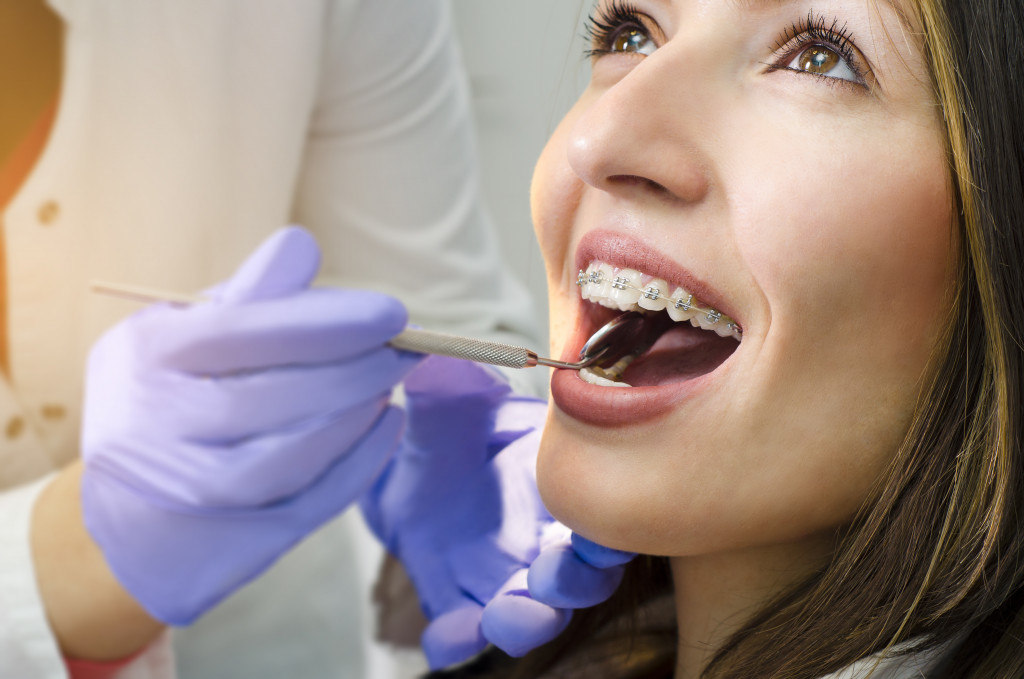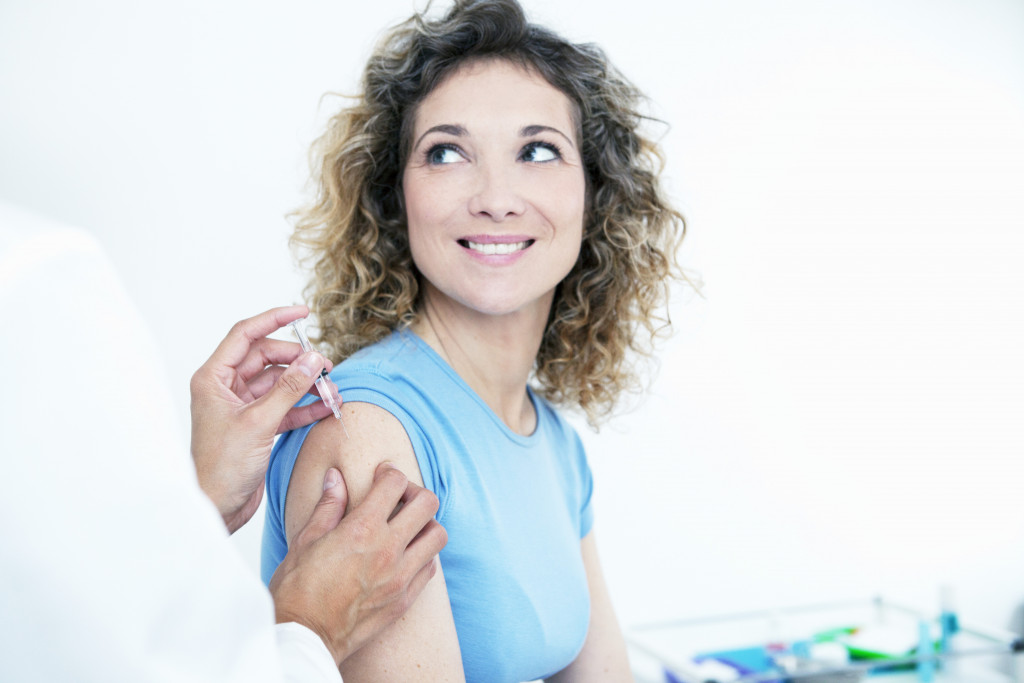- Have medical and dental checkups before traveling abroad to identify any existing illnesses or risks.
- Get the necessary vaccinations to protect against bacteria and viruses, and consult a medical professional to determine what is needed.
- Bring a medical kit with items such as pain relievers, antihistamines, and adhesive bandages.
- Stay hydrated and avoid dehydration by drinking plenty of fluids, avoiding caffeinated or alcoholic beverages, and snacking on nutritious foods.
Traveling abroad can be an exciting and rewarding experience. Still, it is important to make sure that you take the necessary steps to ensure your physical well-being before embarking on a journey. Following these simple tips can help ensure your travels are safe and enjoyable.
Be mindful of your health status.
Being mindful of your health status before you travel is an important part of staying safe abroad. Here are some tips on how to do it:
Have medical and dental checkups.

It is important for those traveling abroad to prepare for the trip in advance, including taking the necessary steps to ensure physical well-being. Having a medical and dental checkup before departure should be one of the top priorities on the checklist.
This will help identify any existing illnesses or diseases along with any potential risks, giving travelers peace of mind as they travel. Taking it one step further, going to a reputable dental office before traveling abroad is recommended. They can perform professional cleaning and other essential services that might not be available at their destination. These must-dos should not be ignored regarding health and safety before traveling abroad.
Get the necessary vaccinations.

Vaccines are essential in protecting one’s physical well-being before a trip abroad. Vaccinations help to protect against illnesses caused by exposure to various bacteria and viruses, both contracted through contact with other people and released into the environment. When picking out necessary vaccines for travel, consulting a medical professional can ensure the best protection.
They can help determine which ones are needed based on the travel location, length of stay, and other relevant variables. Having the proper vaccinations is not only beneficial for individual health but also helps from spreading any illnesses back home upon return from abroad. Knowing what vaccinations are necessary beforehand means travelers can be fully prepared for their journey without worrying about potential illness from leaving such important steps unaddressed.
Bring a medical kit.
This includes an over-the-counter pain reliever, anti-diarrheal medication, antihistamines for allergies, adhesive bandages, and antiseptic wipes. These items can be incredibly useful in helping you maintain physical well-being while away.
For instance, if you’re visiting a cooler climate than your own, having certain decongestants handy can be tremendously helpful in avoiding or managing sinus or respiratory issues. Similarly, having fever reducers can help with allergies and other conditions exacerbated by unfamiliar environments.
Furthermore, suppose any minor injuries occur while navigating a new environment or engaging in activities during travel. In that case, antiseptic wipes and adhesive bandages will ensure that your body stays in its best possible condition. Bringing basic medical supplies when traveling abroad is essential for promoting physical well-being.
Stay hydrated and avoid dehydration.
Due to time zones and altitude changes, travelers may experience different environments, which can cause physical stress and the need for hydration. Properly hydrating the body helps maintain fluid levels in cells and organs. One must replenish lost fluids throughout their travels; drinking plenty before long trips can help combat depletion.
Additionally, avoiding caffeinated or alcoholic beverages and overly sugary snacks will ensure that travelers remain refreshed as possible. Consuming clean sources of fluid such as water, herbal teas, or diluted juice will also provide vitamins and minerals throughout the journey – helping travelers stay energized and keep their bodies functioning well enough to adjust to any changes in climate or environment they may experience while abroad.
Watch what you eat and drink.
Watching what you eat means paying attention to the quality, quantity, and type of food you consume while away from home. On top of researching local cuisine before your travels and only eating properly cooked and prepared foods, it’s also important to observe proper hydration by drinking plenty of purified water.
This can help prevent food poisoning or illness due to bacteria or contaminants in certain regions. Additionally, checking for any dietary restrictions in place due to location or culture can be beneficial as it can help prevent accidentally offending people or traditions by trying new dishes unfamiliar to them.
Research the destination thoroughly.
This can include researching information about the area’s safety, medical facilities, currency exchange rates, and any travel warnings or restrictions put in place by your home government. Knowing the language and culture of the country you are visiting is also an important part of the research.
Awareness of cultural norms, laws, customs, and expected behaviors must be considered. In case of unforeseen complications abroad, having contact information for embassies or consulates from your home country may be beneficial. Taking the time to properly research a destination before embarking on a foreign journey can save travelers a lot of grief and potential risks.
These are all important steps for any traveler to ensure their physical well-being before and during a trip abroad. By adhering to these guidelines, travelers can have peace of mind knowing their trips will be safe and pleasurable.



